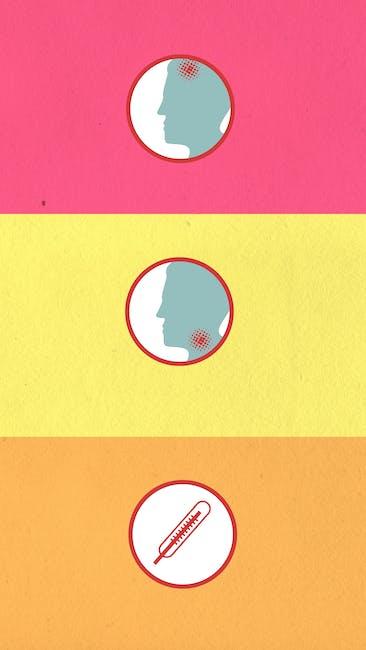
Mumps is a highly contagious viral infection that affects the salivary glands. It is characterized by painful swelling of the parotid glands, which are located in the cheeks and jaw. Mumps is most common in children, but it can also affect adults who have not been vaccinated or previously infected. In this article, we will discuss the symptoms of mumps and what to look out for if you suspect you or someone you know may have contracted the virus.
It is important to be aware of the symptoms of mumps in order to seek medical attention as early as possible. Early detection and treatment can help reduce the severity of the infection and prevent complications. If you suspect that you or someone you know may have mumps, it is important to consult a healthcare professional for an accurate diagnosis and appropriate treatment.
1. Swelling of the Parotid Glands
One of the most common symptoms of mumps is the swelling of the parotid glands, which are located on the sides of the face, just below the ears. The swelling can be quite painful and may make it difficult to swallow or eat. In some cases, the swelling may be visible from the outside, causing the cheeks to appear puffy or swollen.
If you notice any swelling or tenderness in the cheeks or jaw area, especially if it is accompanied by pain, it is important to seek medical attention to determine if it is mumps or another condition causing the symptoms.
2. Fever
Fever is another common symptom of mumps. The fever may develop a few days before the swelling of the parotid glands or may occur simultaneously. The body temperature may rise to 103 degrees Fahrenheit or higher, and the fever may be accompanied by chills and sweating.
It is important to monitor your body temperature and seek medical attention if you experience a high fever, as it may indicate an underlying infection such as mumps.
3. Headache
Headache is a common symptom that accompanies mumps. The pain may be mild to severe and is often felt in the temples or forehead. The headache may be constant or intermittent and may worsen with movement or physical activity.
If you experience persistent headaches along with other symptoms such as fever and swelling of the parotid glands, it is important to consult a healthcare professional for an accurate diagnosis and appropriate treatment.
4. Fatigue
Fatigue and weakness are common symptoms of mumps. The viral infection can cause a general feeling of tiredness and malaise, which may interfere with daily activities and affect overall well-being. The body’s immune response to the infection can also contribute to feelings of exhaustion.
If you experience persistent fatigue or weakness along with other symptoms of mumps, it is important to seek medical attention to address the underlying cause and receive appropriate treatment.
5. Loss of Appetite
Mumps can also cause a loss of appetite, which may be due to the pain and discomfort associated with the swelling of the parotid glands. The loss of appetite may lead to a decrease in food intake and may contribute to feelings of weakness and fatigue.
If you experience a significant loss of appetite along with other symptoms of mumps, it is important to consult a healthcare professional for an accurate diagnosis and appropriate management of the symptoms.
6. Sore Throat
Many individuals with mumps may also experience a sore throat, which may be attributed to the swelling of the parotid glands and the overall inflammation of the upper respiratory tract. The sore throat may be accompanied by difficulty swallowing and discomfort when speaking or eating.
If you experience persistent sore throat along with other symptoms of mumps, it is important to seek medical attention to address the underlying cause and receive appropriate treatment.
7. Testicular Pain (in males)
In males who have reached puberty, mumps can cause inflammation of the testicles, a condition known as orchitis. This can result in swelling, tenderness, and pain in the testicles. Orchitis usually affects only one testicle, but it can affect both.
If you experience testicular pain or swelling along with other symptoms of mumps, it is important to consult a healthcare professional for an accurate diagnosis and appropriate management of the symptoms.
8. Nausea and Vomiting
Some individuals with mumps may experience nausea and vomiting, which may be attributed to the overall discomfort and malaise associated with the viral infection. Nausea and vomiting may also contribute to a loss of appetite and dehydration.
If you experience persistent nausea and vomiting along with other symptoms of mumps, it is important to seek medical attention to address the underlying cause and receive appropriate treatment.
9. Earache
Earache is another potential symptom of mumps, as the viral infection can cause inflammation and swelling in the parotid glands, which are located near the ears. The earache may be mild to severe and may worsen with movement of the jaw.
If you experience persistent earache along with other symptoms of mumps, it is important to consult a healthcare professional for an accurate diagnosis and appropriate management of the symptoms.
10. Difficulty Hearing
In some cases, mumps may cause temporary hearing loss, which is typically due to the swelling and inflammation of the parotid glands. The difficulty hearing may be mild to severe and may affect one or both ears. The hearing loss is usually temporary and resolves once the infection subsides.
If you experience difficulty hearing along with other symptoms of mumps, it is important to seek medical attention to address the underlying cause and receive appropriate treatment.

















